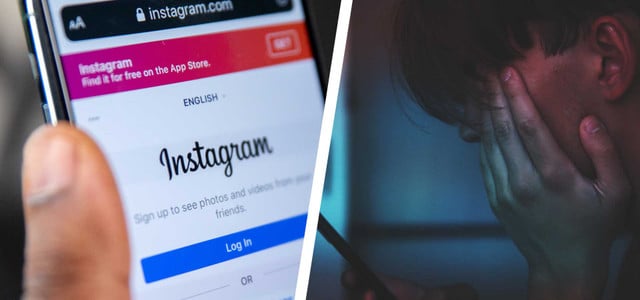
Many people follow coaches on social media platforms like Instagram. These promise help with various problems. But dubious offers can have dire consequences.
Martin Gommel is a mental health reporter who writes openly about his own bouts of depression. In an interview with Der Spiegel, he warns of dubious coaching influencers on social media. For those affected, these offers can have dire consequences, says Gommel.
Social media coaching: just the wrong mindset?
Coaching offers have long been established on social media platforms such as Instagram, with hundreds of thousands of people following the relevant accounts. What the videos often have in common: According to Gommel, they promise simple solutions to complex interpersonal or personal problems. The videos imitate conversational situations, for example, or are accompanied by theatrical music.
“The content is rarely complex or detailed, but mostly confrontational, in the sense of: ‘You have to change your life,'” says the expert. In addition, they would serve a similar narrative – namely that those affected are responsible for their misery and just have the wrong “mindset”. Gommel warns: “This is not only perfidious, but can also be dangerous.”
Depression often trivialized
Dubious social media coaches promise a lot, including healing from anxiety or depression. Depression in particular is often trivialized, explains Gommel, who himself is one of those affected by the disease. The disease can be fatal without scientifically based treatment. Psychiatry saved his life. The fact that some coaching offers on social media discredit psychotherapy makes him “really angry”.
Gommel is also critical of the fact that appropriate offers blur the line between coaching and therapy and refers to the long waiting times to get a place in therapy. In Germany, these are around five months – dubious coaches can benefit from this.
Those affected by depression “particularly susceptible”
Depression is also often associated with feelings of guilt. “If an influencer comes along and tells you that it’s all because of your wrong attitude, it can make the situation worse,” warns the journalist. “People who actually have mental health problems are very vulnerable and some are particularly receptive to such messages.”
Some coaches would even attribute problems such as poverty, exclusion or bullying to “wrong thoughts”. Gommel makes it clear: “This mentality, ‘You can do anything if you just want to’, also denies social grievances.” Some coaches also try to use esoteric approaches such as the “law of attraction” or “manifestation” to address grievances attributed to one’s own thoughts or a certain attitude.
Nevertheless, not all offers on social media platforms are dubious. As positive examples, Gommel cites psychotherapists who provide serious information about illnesses, or those affected who report on their own experiences.
Source used: Mirror